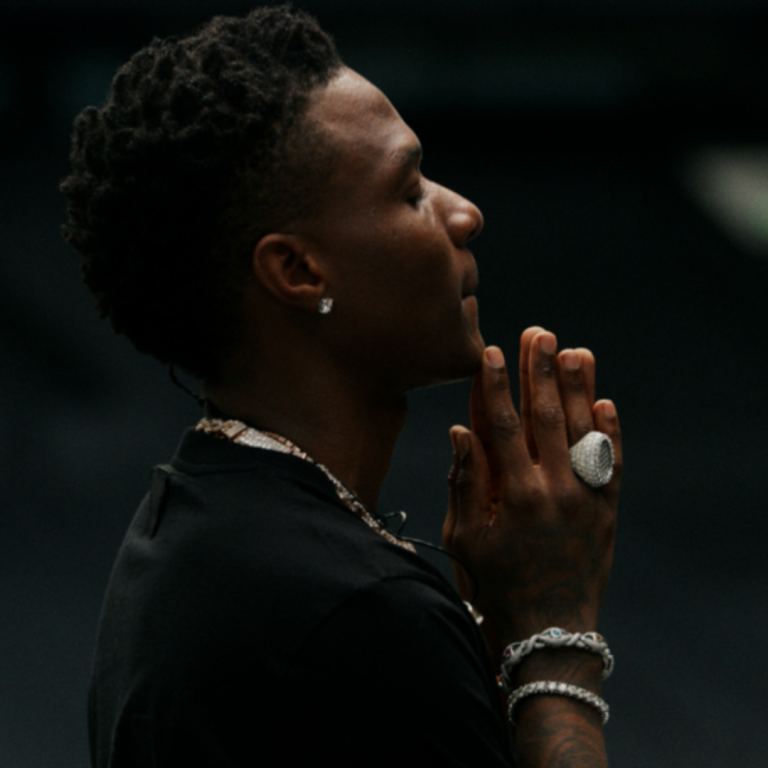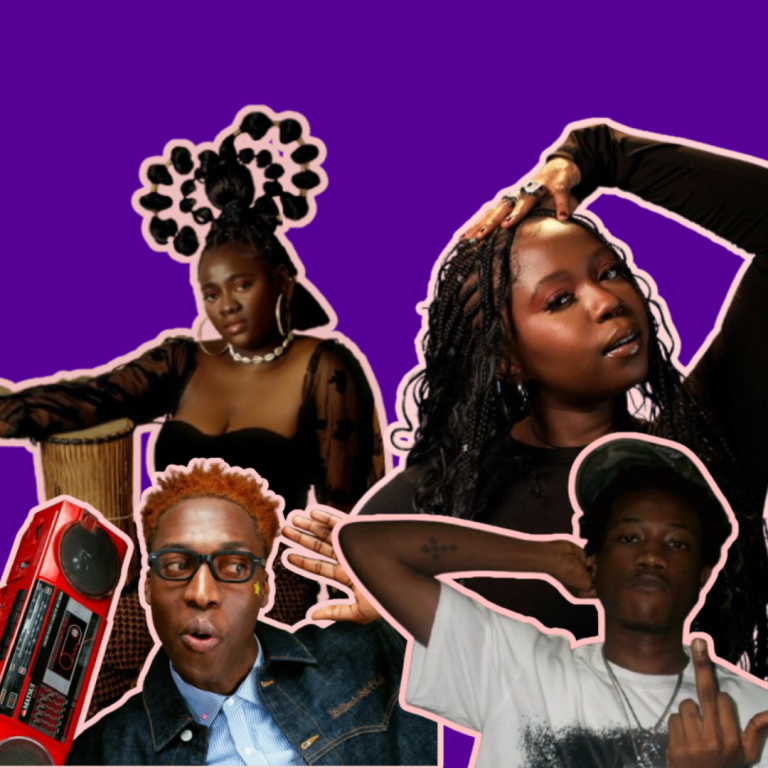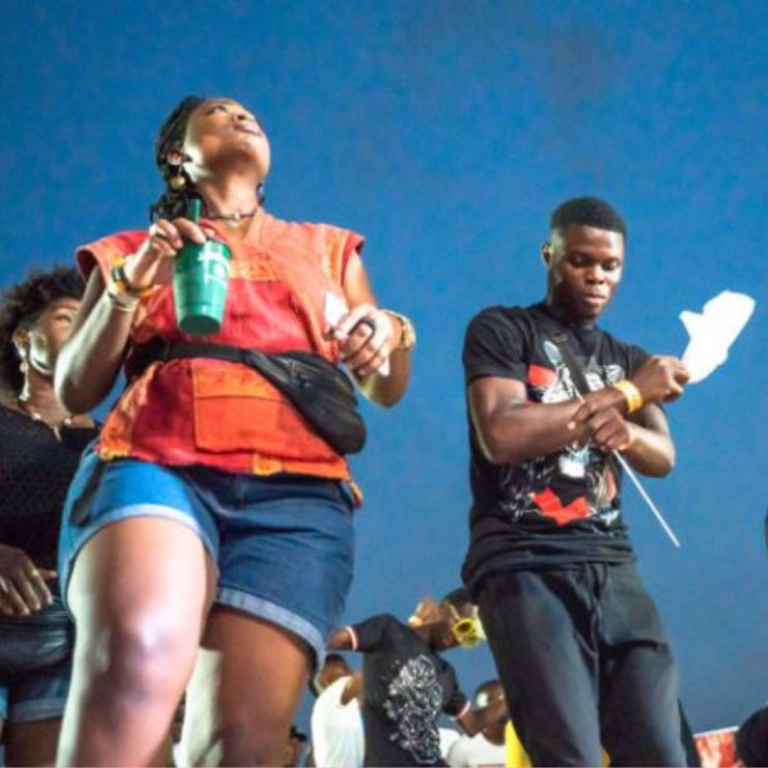Every time KCee picks up a thought or answers my question, compelling attentiveness logs in the air. It’s not that he’s hosting a masterclass, but he has stories for days. I imagine books and self-recorded audiobooks about older Nigerian music artists, unravelling their biographies and career stories. He speaks with detailed experience and assured conviction, humbly discussing timelines and moments of his life and career in an exciting tone.
This same excitement is present and intact on “Mr. Versatile”, the Ajegunle-bred singer’s latest album. Every melody and production in his 20-track “Mr. Versatile” is an exhilarating gyration. KCee’s having fun with his sonic experimentation, a cross-pollination of traditional African sounds and contemporary pop. It almost sounds neo-cultural.
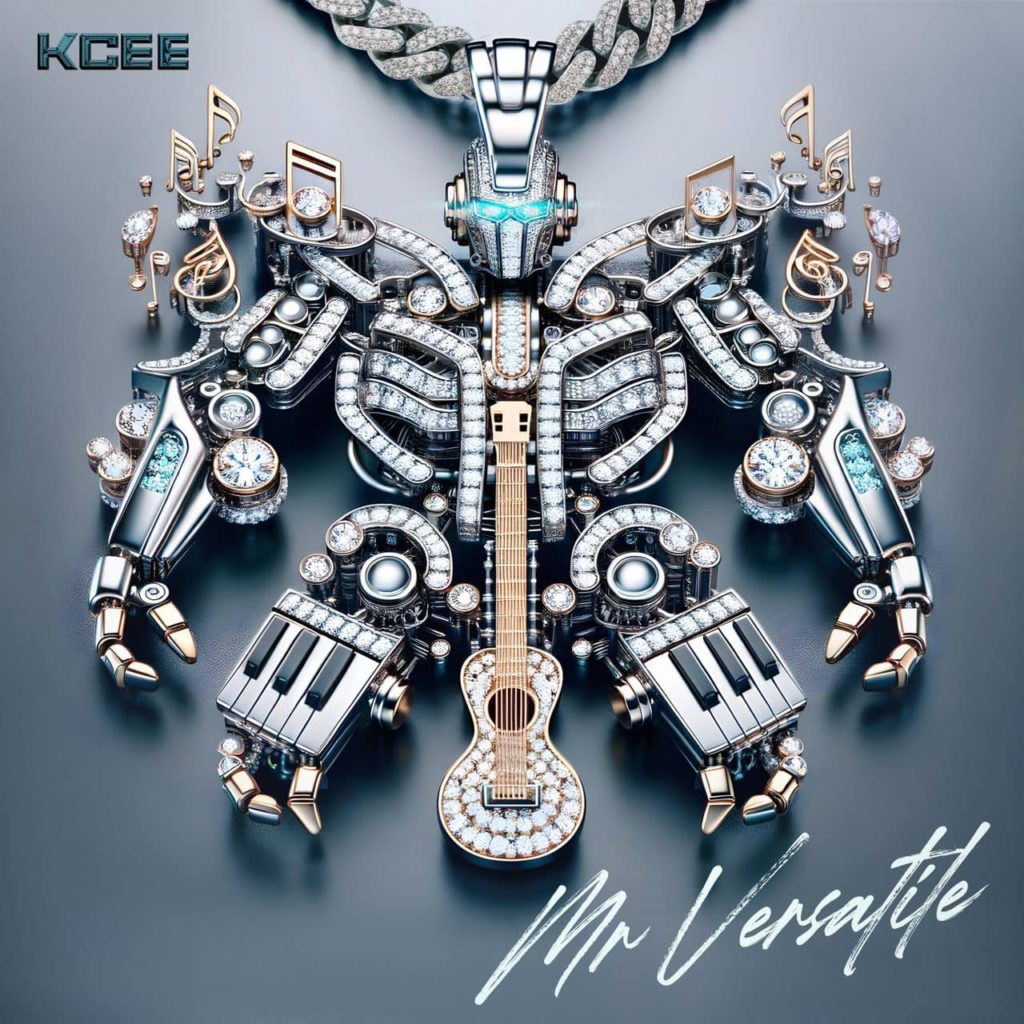
The album marks KCee’s 25th year as a career musician. Over two decades, he has created a catalogue of sonically diverse albums. He’s been there and done that, from a talent show discovery to a hot-demand artist to a Southeast cultural icon and veteran who reinvents himself almost every year. KCee’s career is fascinating. To a generation, he’s the guy from the KC Presh group. To another, he’s the Limpopo guy. To a younger generation, he’s the Ojapiano man. He ticked OG status boxes: longevity, commercial success and relevancy.
We connected over Google Meet a week after the release of his new album, Mr. Versatile, and talked about the new record, his sounds experiments, Ojapiano’s success, his hit-making ability and renewed passion for making music on a global level, and more.
“Mr. Versatile” is a widely diverse album in terms of production and guest features. It’s also your first album in three years, acclaimed for its creativity and flexibility. I’m curious how this album came together.
KCee: I spent time thinking about my journey as an artist and performer in the last twenty-five years, listened to my older music, and felt that my versatility and adaptability with the ever-changing sound wave was overlooked. This (process) birthed the album idea.
I developed it, focusing on the sounds I can comfortably engage and finesse. The album’s experience is executed and curated in a way the listeners quickly recognise, even down to the features,and that’s why it’s titled “Mr. Versatile.”
Yeah, you went as far as India and featured Kanika Kapoor
KCee: Yeah. The success of Ojapiano created that pathway. After its release and a study of my music distribution and streaming numbers on the backend, it became clear that most of my fanbase and streams come from Asia, particularly India. My team and I also received messages from fans, listeners and musicians from that part, curious about Ojapiano. I began making friends with some of these guys, and one of the relationships even birthed an Ojapiano Indian remix that couldn’t make my album’s final tracklist due to a long-drawn-out paperwork process. The song and video are ready; it’ll be out soon.
Interesting. Tell me about the Ojapiano remix with One Republic. How did it come about?
KCee: Interestingly, One Republic reached out to me. Ojapiano was viral and trending heavily in Africa in 2023. They were with TikTok’s owners and had talked about my song. My conversation with the TikTok folks and One Republic eventually became a linkup. They wanted to see me. I was also in the US, so I flew from Houston to Los Angeles. We headed to the studio. It was an out-of-body experience. I thought, “Yooo, white bands are on our wave right now.” In fact, I’m on their forthcoming album.
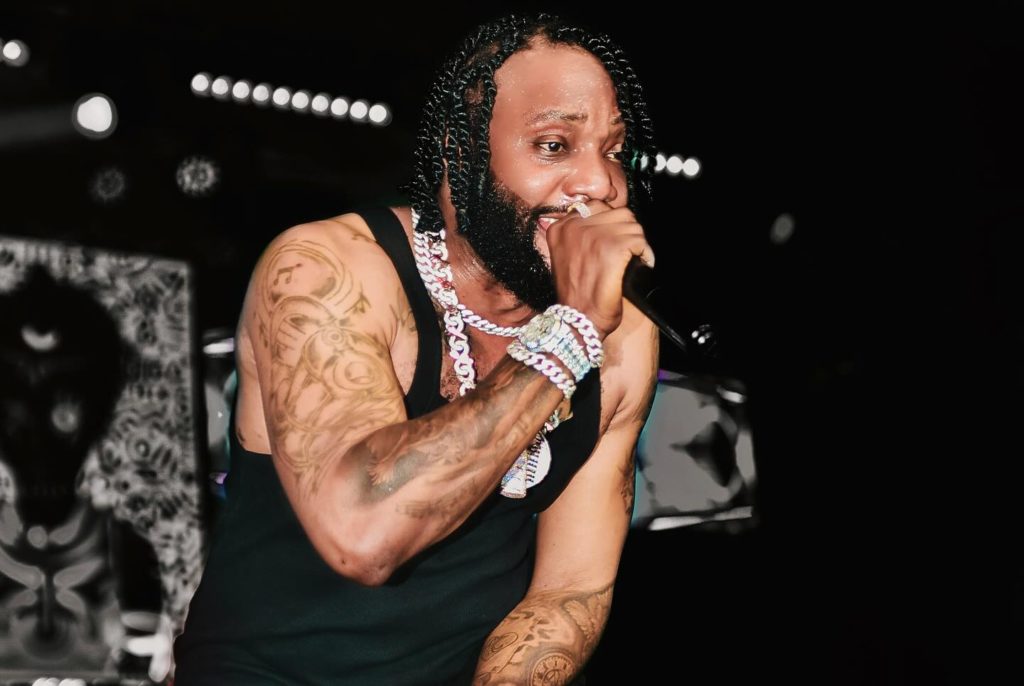
That’s beautiful. From your recent hits and the music you’ve released in the last four years, you have fully embraced the Igbo culture and African traditional sound into a fusion. What was the major shift?
KCee: In 2017, I thought of reinventing myself, different from the sound I was known for. I decided to pick up the Nigerian Highlife sound. When I had an idea of how I’d execute it, I headed to Onitsha to spend months working with its local artists and sounds to make an album titled “Eastern Conference” (2019). It wasn’t commercially successful, but it’s important because it marks the learning process in my current sound. I took everything I learned from it to “Cultural Praise”, the album that followed in 2021. For “Cultural Praise”, I avoided digital sound and made almost the whole album as local and live as possible.
On the album, I executed my vision to make contemporary gyration music. The songs on the album played in nightclubs, strip clubs, events, radio, and streets. I performed the songs across the country. People danced to the music regardless of tribe or culture. Later, in November 2021, I released “Cultural Vibes”, an EP where I reworked songs from older Igbo musicians like Oliver D’Coque, Chief Stephen Osita Osadebe, and Gentleman Mike Ejeagha, whom I met in 2018, and sampled his Ka Esi Le Onye Isi Oche song.
During my 2022 Thanksgiving Concert in Eko Hotel, after I had performed old hits like Limpopo, the audience’s energy multiplied when songs from “Cultural Praise” came on. My wife called my attention to the crowd’s reactions and told me to never stop. Right there, I was convinced I had hacked the sound. 2023 came, and I locked in and made Ojapiano. Everyone in the studio had goosebumps when we finished the record. From there, the funky masquerade dressing style came to me. I thought of infusing masquerades into it, too.
During research into African musical instruments, I discovered that flutes and sounds similar to the Oja flute are across other African countries like Tanzania. So, I must take African sounds into the unfamiliar realms and create magic. Staying true to culture has opened more doors for me. Now, there’s no week I’m not travelling worldwide to perform these songs. I aim to take them to international stages like Coachella and Wireless. I want to see white folks jump around to my music.
You were sure you had a hit when you made Ojapiano. What does it take to recognise a hit?
KCee: It came from having a DJ dad. My dad’s record store was in front of our house, and he played hit songs that drove customers to our store all day. I consumed all of them. When my brother E-Money and I became teenagers, we had access to his DJ equipment and began to play at parties. So, when I’m in the studio making my music, there’s no sentiment — I’m questioning why I think people would listen a song, why it even works for me. Even almost all the producers and writers I have worked with, I directed them. I still do it.
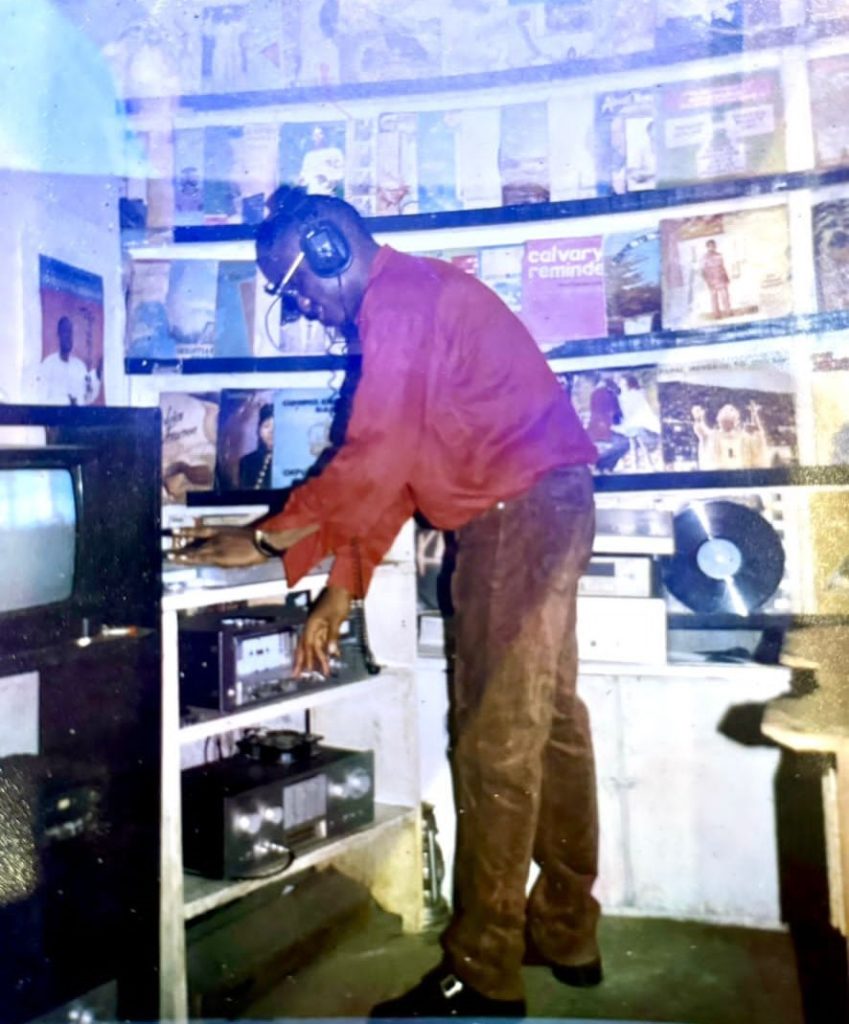
So, your dad influenced you to become an artist?
KCee: Nah, it’s quite the opposite. My dad DJ’d, but he never wanted any of his kids to do music due to the archaic belief that it wasn’t lucrative enough to give the best life and musicians were wayward. Aside from playing the DJ set and performing with our church choir, music was restricted. Football was my dream. I played professionally for Puma Football Club. I was a footballer when the music dream finally joined. During that time, I was a member of an HIV awareness group and had gone to NTA for an HIV awareness presentation. After my presentation, comedian Julius Agwu saw me and approached me to say that the song I had composed for my presentation was nice. He told me the condom brand Golden Circle was on tour, and he played my music for them. They liked it and put me on board with Presh, my former music group member. We toured the whole 36 states in Nigeria. That was the beginning of my journey to becoming KCee.
What about your strict dad?
KCee: Man, I returned from that tour with almost 50,000 every week. That was our annual house rent back then. Imagine coming home with that sum every week throughout the tour period. My father saw the light and allowed me to do my thing.
Was touring with a big brand easy back then?
KCee: I won’t say it was. I was just lucky to meet Julius Agwu. Getting with Golden Circle formed my KCPresh group with Presh. During the tour, I met the younger 2Face, Blackface, and Eedris AbdulKareem, who informed me about an upcoming talent show called Star Quest and encouraged me to enter the competition.
So, music made you kick football to the curb?
KCee: I played football while I was doing my music, too. But one day, during the Star Quest show, I limped throughout a performance due to an ankle injury I picked up in a football match. Presh was unhappy with it, so he challenged me and said I needed to pick one: football or music. I played for Puma Football Club and had even travelled to South Africa for matches. But music was paying me more and slowly coming into major focus, so I picked it and left football.
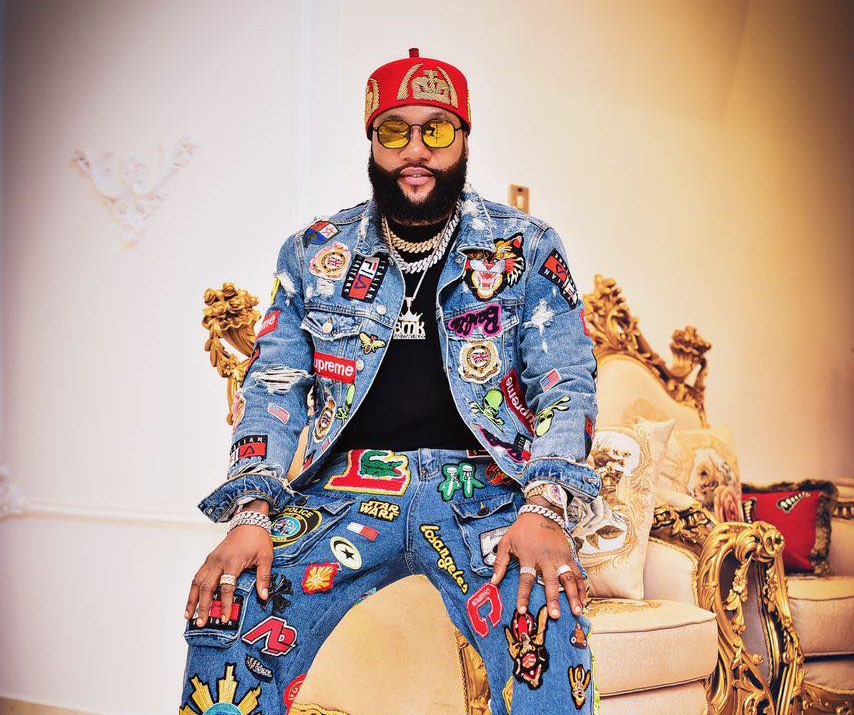
You were there before Afrobeats travelled the world and are still active now that it’s everywhere. How does it feel to watch its evolution over the years and share in its current success?
KCee: I’m grateful to be alive to make music, witness the transformation and be part of the recent successes the movement has produced. I’m proud of the young headliners who’re taking music around the world. I was at the last Grammys, and it was great to watch Burna Boy perform live. I also saw people open up to Nigerian artists immediately after they say they make Afrobeats music. It’s exciting. The growth is almost unbelievable compared to the 2014 Grammy event I attended with Harrysongz, Kennis Music and Ayo Animashaun (CEO, HipTV). We held each other, hyped, screamed and emphatically asked when it’d be Nigeria’s turn. Now, it’s here, sooner than I thought it’d take.
While most of the folks I started with have left the music scene, I’m still here, making music right now. I was there when it all started, and I paid my dues. I’m determined to do my best, make the most of Afrobeats’ big trajectory, and be intentional about it.
What’s next for KCee?
KCee: There’s a whole lot, and everything’s in order. I have a lot of music coming, and I’m excited for the new generation of kids who’ll know my music. Even now, I’m working on another record incorporating another local Nigerian instrument. If that works out, Nigeria and the whole of Asia will feel it.


